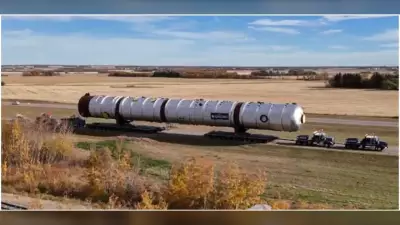
A multi-generational Manitoba beekeeping operation is facing an existential threat that could wipe out decades of work and ecological stewardship. The Wiebe family, who have nurtured their bee farm for generations, now confront a government expropriation plan that would destroy their entire business to make way for a highway expansion.
A Century of Beekeeping Heritage in Peril
The proposed route for the Provincial Trunk Highway 75 expansion would cut directly through the heart of the Wiebes' bee farm, eliminating their honey house, warehouse, and the carefully cultivated environment that supports their 1,200 hives. This isn't just a business at stake—it's a family legacy that has survived for nearly a century through droughts, harsh winters, and countless challenges.
"We just want this to survive," pleads Rhonda Wiebe, whose family has operated the farm since the 1930s. "It's not just about us—it's about preserving agricultural heritage and the essential pollination services our bees provide to the entire region."
The Devastating Impact on Local Agriculture
The potential loss extends far beyond the Wiebe family's operation. Their bees play a crucial role in pollinating crops across southern Manitoba, supporting the broader agricultural ecosystem. The expropriation would:
- Eliminate 1,200 active bee hives from the local environment
- Destroy specialized infrastructure built over decades
- Remove critical pollination services for area farmers
- End a sustainable agricultural business that has adapted to modern challenges
Government Plans vs. Agricultural Preservation
While the Manitoba government moves forward with infrastructure improvements, the Wiebes question why alternative routes that would spare agricultural operations haven't been seriously considered. The family has invested significantly in making their operation sustainable and efficient, only to face complete eradication.
The situation highlights the ongoing tension between infrastructure development and preserving vital agricultural resources. As climate change and environmental concerns grow, the role of pollinators becomes increasingly critical to food security and ecosystem health.
The Wiebes' fight represents a larger struggle for small-scale agricultural operations across Canada, caught between progress and preservation. Their story raises important questions about how we value food production systems versus transportation infrastructure in our rapidly changing world.






